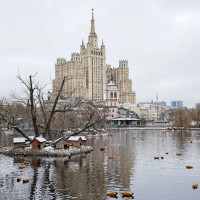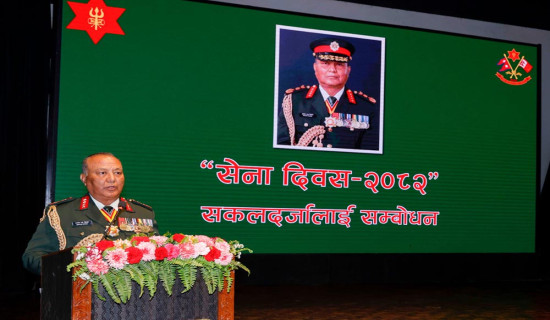- Saturday, 14 February 2026
Description Of Bhutanese Refugees Plights
Bhutan expelled people who had come to Jhapa District of Nepal to save lives and have now resettled in many countries with newly acquired status as refugees. They are mostly in developed countries, and with hard work and sincerity, the economic progress they have made is impressive. Also, a happy thing in this regard is that the books written by such Bhutanese authors are increasingly coming for readers.
Some notable works of Nepali literature they are contributing to are poems, essays, and even novels. In fact, this passion for writing among the Bhutanese refugee authors has not grown without cause. Repercussions of expulsion from the land they were born in and shifting of identity from natural citizens to refugees are that painful wound that compels them to write and tell stories of their hearts.
Here we have one such book that tells some tearful stories of the Bhutanese refugees. This is the English novel by author Y. N. Chaulagai entitled “The Plight-Witness,” which originally was in Nepali, and now it has come into English for readers. The English translator of it is Hem Guragain. One more thing that must not be forgotten to mention here is that this book has also received guidance and suggestions from experts like Dr. Govinda Raj Bhattarai, Mahesh Poudel, Ramesh Lamsal, and Khagendra Bhattarai for its English version. With these collaborative efforts, the book has become beautiful to read.
Now, coming to the theme of the novel, the stories in it have been described through "Plight-Witness." What one thinks when a new man arrives with his family near his own place? The first impression can’t be good. The same assumption was there for Kamal, the witness, about the arrival of Jeetbahadur Darlami Magar to the Kankai riverbank of Jhapa District in Nepal. But when they listened to true stories of Magar, his plight was really heart-touching.
As the novel has highlighted, Bhutanese self-centric opinion about the action they took was as per the national census of 1988, Marriage Act, and Nationality Act. But thinking it practically, their acts were not equal to the people dwelling inside the country. It means the impact was divisive and torturous to some communities. Sufferers were compelled to flee, and Bhutan drew harsh despise.
So, Kamal, the main character in this novel, and his friend Ujjwol keep seeing it all and frequent refugee victims of Bhutan and sympathetically offer help for them because they are the residents of a neighbouring area of refugees.
In fact, the novel “The Plight-Witness” keeps describing case by case; it takes no time to increase the number of refugees from Bhutan. Jeet Magar is the first, Padam Lal Kattel is the is the other; Timsina priest and Harka Raj Gajmer are just a few cases to describe their heart-touching stories of fleeing from Bhutan.
Stories and conditions of refugees, which they faced before fleeing Bhutan, which is the dear homeland of their own, are different; but whatever they went through that all was inhuman, harsh, and deplorable.
Today the refugee problem is resolved. All of them are living in eight different countries of the world, which all became possible after the solution was sought under the mediation of the UNHCR. The trouble that strained Nepal and Bhutan relations, too, softened little with this.
But this issue has already become a record in history. Moreover, the real pain the refugees faced is there in their hearts. They lost their identity of country as citizens, and similarly, the love of the soil and their many sentimental attachments with Bhutan now only became a dream.
So, facts are facts. They can be unloaded in the form of Nepal’s experience with the Bhutanese refugee crisis, too. The more enchanting thing about this is that there have been more and more literary publications written by authors of former Bhutanese refugees in recent times. The novel “The Plight-Witness” can be regarded as the latest proof of the painful expressions of this crisis.
Thus, beyond doubt, this book, which has come out in polished English, will ensure delightful reading to international readers. In fact, fiction writing honours human feelings more than facts. But the merit here is that this novel is built with facts and sentiments both.
In this regard, we can appreciate novel author Y. N. Chaulagai and translator Hem Guragai because they helped to keep Bhutanese refugees’ memories alive by writing and publishing the novel “The Plight-Witness.”.
Conclusively, memories of horrific atrocities keep haunting individuals all the time. It can neither be forgotten nor compensated. The novel’s ending questions are appropriate in this regard: “To what extent is their rehabilitation complex?
How shall they be compensated for everything they lost? Can the Bhutanese ruling elites pay back the cost of refugees?” The novel’s such questions are relevant to think over the issue for readers in global context, too.
(Kafle is a former Deputy Executive Editor of this daily.)

















